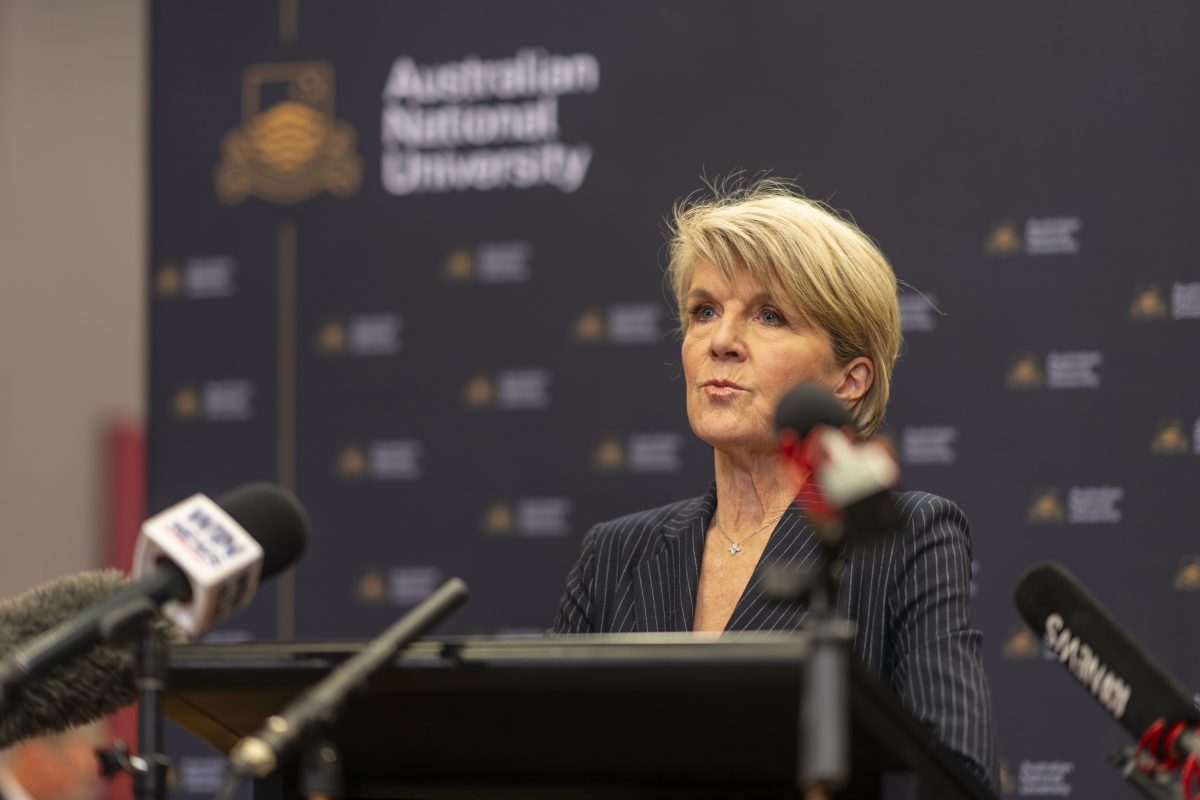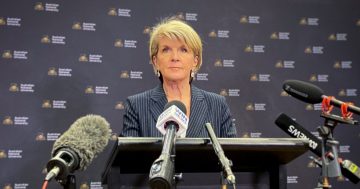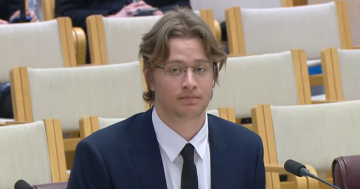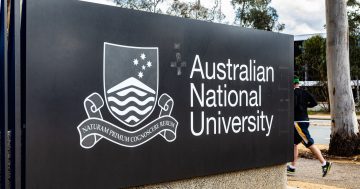
ANU Chancellor Julie Bishop said the university is looking to shut down its Perth office, which cost almost $800,000 to set up. Photo: Jamie Kidston/ANU.
The Australian National University is looking to exit the lease of its Perth office, which cost almost $800,000 to establish, despite being described by Chancellor Julie Bishop as a “good return on investment”.
Ms Bishop defended the office’s existence during a Senate inquiry hearing, stating it had been part of ANU’s vision to be a “truly national” university and had led to substantial philanthropic investment.
“Since the Perth office has been opened … we’ve raised $10 million in donations,” she said.
“Academics and students and alumni [also] use it … [it’s a] good return on investment.”
Ms Bishop argued that the office had incurred significant costs due to the COVID-19 pandemic’s border closures at the time, and that ANU had been in a “vastly different” financial situation when she was approached to become Chancellor in 2019.
But given ANU’s more recent financial struggles, the office’s existence had to be re-examined.
“We are looking to exit the lease of the ANU office in Perth,” Ms Bishop said.
“[It was] a brilliant idea, a vision that I wholeheartedly support, but we can no longer afford to have an office in Perth.”
Ms Bishop was also grilled about her $790,000 in ongoing expenses for 2024 (including $150,000 in travel expenses).
She responded that she hadn’t touched her travel allowance in 2020 and 2021. Given she was expected to represent ANU internationally, she’d “doubled down” on that aspect of her role.
“That was an unexpectedly large focus [in 2023 and 2024],” Ms Bishop said.
When it came to concerns about her leadership, Ms Bishop wouldn’t be drawn into whether she felt it was appropriate for her to keep her position.
ALP Senator Tony Sheldon repeatedly asked whether Ms Bishop would apologise for issues at ANU, including its financial situation, governance and transparency concerns, alleged misleading statements to the Senate, findings of a toxic culture in the Nixon Review, and an overall “complete loss of faith” in the leadership.
Ms Bishop maintained that the ANU Council and deans supported her and rejected suggestions that she wasn’t wanted at the institution.
“That’s not the feedback that I’ve been getting … I believe I have an obligation to see through my term,” she said.
She rejected allegations made about her conduct and welcomed all investigations and reviews into ANU.
“I’m always concerned by mistakes made, and I have made a mistake, I apologise,” Ms Bishop said.
“If the council has made a mistake, then on behalf of the council, I would apologise.”
The Chancellor wasn’t the only ANU executive who came under fire.
Chief Operating Officer Jonathan Churchill was accused of misleading the Senate by both independent ACT Senator David Pocock and Greens Senator Mehreen Faruqi.
Ms Faruqi accused Mr Churchill of lying to her and the Senate when he’d previously said underlying UniForm data and methodology had been released to ANU staff and the broader community.
He said ANU had made an explainer of the UniForm report as the university didn’t have access to the raw data.
“[We] made the data we have available to the community,” Mr Churchill said.
“I reject the allegation [I’ve misled the Senate].”
Interim Vice-Chancellor Professor Rebekah Brown was grilled about why she didn’t stop the restructuring Renew ANU program while she was Provost.
She responded that she didn’t have the authority to do so and mentioned that she wanted a full academic plan and university strategy to be developed before any changes were proposed or made.
“Now I have the delegation, now I have the responsibility, I’ve been really clear that the first thing that we’re doing is co-developing, co-designing our strategic direction, our strategy and our academic plan,” Prof Brown said,
“If there are to be changes going forward, they will be informed by that strategy.”
ANU is anticipated to return a “small” net operating surplus for 2025, leading an international credit rating agency to affirm its AA+ long-term credit rating for the institution.
S&P Global Ratings has formed the view that ANU will “maintain high levels of financial resources” and lower its debt burden, resulting in an adjusted net operating surplus of about 0.8 per cent of operating expenses (following a 2.6 per cent deficit in 2024).
“We expect its operating margin to improve as ANU focuses on cutting costs via its ‘Renew ANU’ program, including reducing the number of colleges, discretionary spending, and headcount,” the agency noted.
“We expect ANU’s financial resources to be very high relative to operating expenses and debt compared with those of domestic peers.”
It noted that the university’s enrolments were gradually growing and that extending an accommodation guarantee to all students in 2026 would increase its attractiveness to international students.
Original Article published by Claire Fenwicke on Region Canberra.








